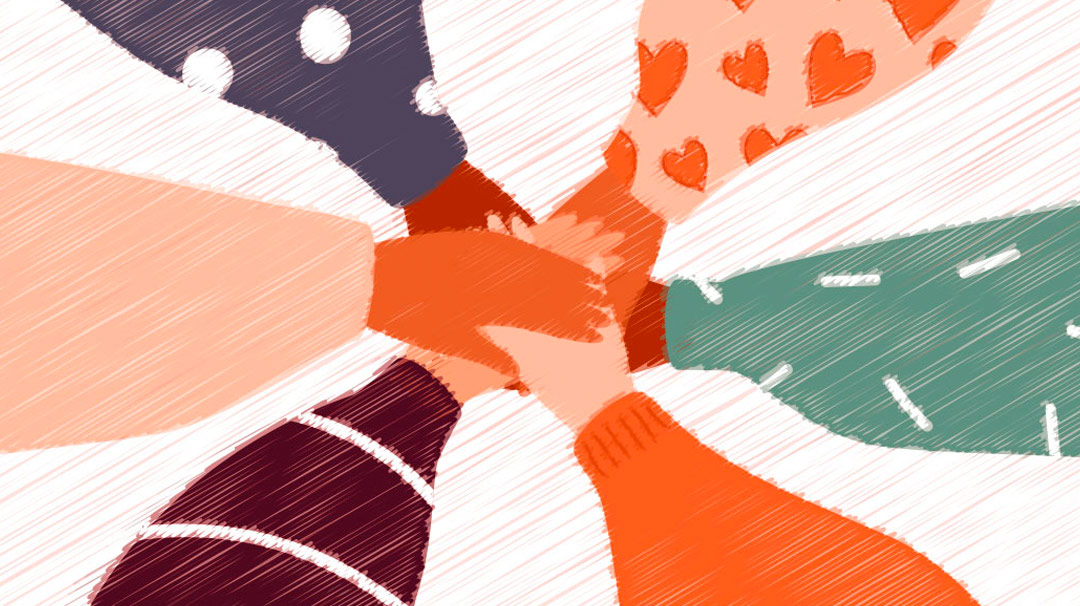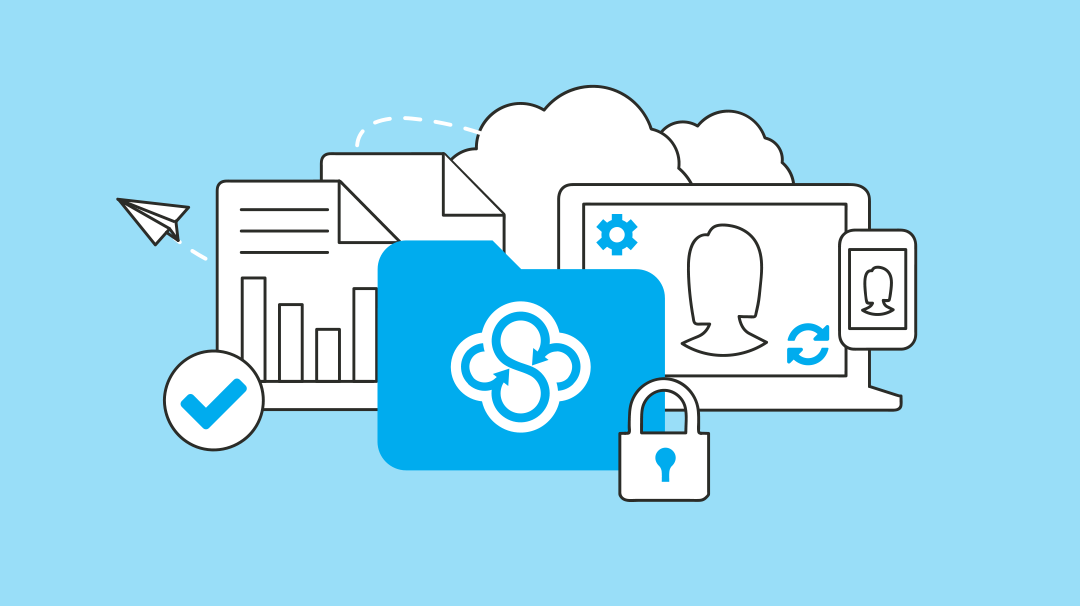The Key to Resilient Teams? Cultivating Positive Emotion
September 22, 2020

Kristen Marano
Freelance writer and communications expert

People who practice vulnerability build a strong team foundation to navigate tomorrow, says The Resilience Project Founder Hugh van Cuylenburg.
We don’t turn off our personal lives when we start work each day. If we’ve had a frustrating morning with our kids, only slept for five hours, or feel anxious about an issue in our lives, we’re going to be distracted, unproductive, and stressed. That’s normal, though how we communicate about these situations as individuals and teams is vital to build a supportive and strong foundation. Checking in with someone, having a conversation, and then moving ahead with the day is an act of resilience: our ability to mentally or emotionally cope with a stressful situation.
“Cultivating positive emotion is the key ingredient to resilience,” says Hugh van Cuylenburg, founder of The Resilience Project, a Melbourne-based organization that works with schools, businesses, and community to support the mental health of Australians. “Our steps to practice gratitude, empathy, and mindfulness improve our wellbeing for the long term.” The more positive we become, the more we’re able to navigate the ups and downs of our day.
While teams around the world adjust to new working setups and navigate anxieties, the Sync team wanted to learn what resilient leaders and teams do well. We spoke with van Cuylenburg, who had to step up his own personal resilience practice during the second lockdown in Melbourne, to have an honest and open conversation about what it takes:
Be Open: Resilient Teams Practice Vulnerability
The global pandemic is challenging us to face our stigmas about mental health. There’s often shame attached to feeling anxious, but it’s a normal feeling. We’re all going through a similar experience on different levels, which allows us to relate to each other, open up, and speak from our hearts.
A lot of the work I do with elite sporting clubs in Australia is about encouraging or creating a space where athletes can be vulnerable. I love the Brene Brown quote, “vulnerability is the foundation of the connection and connection is the foundation of leadership.” We create spaces where people can take their masks off and say, “I know I look stoic and strong, and I’ve got it under control, but here’s what’s going on underneath.”
When people do that, the love and support that comes out of a team environment is unbelievable. I hope that’s what the whole world experiences when we let our guard down. No one is above this pandemic. No one can look down and say, “sorry you went through that.” We’re in this together.
Make yourself vulnerable first to encourage someone to share
We can allow people to speak up by making ourselves vulnerable first. If you ask someone if they’re okay because you’re concerned about them, the best way to make them comfortable to talk is to expose yourself, “I’ve never felt this anxious before. This pandemic is creating anxiety. How are you doing?”
With that lead in from someone else, it would take remarkable circumstances for someone who’s struggling, to not feel comfortable opening up. I can’t remember whose quote this is but it’s a beauty, “it’s no measure of health to be well adjusted to a profoundly sick society.” It’s a sick society right now. It’s normal to be stressed. It’s normal to be anxious. It’s normal to feel a lack of hope and optimism in the world. We’re given permission to not be okay and be open with our struggles.
Be Complimentary: Resilient Teams Share Gratitude and Appreciation
When you notice something nice about someone, share what you think. If someone looks great in the colour they’re wearing, tell them. If you appreciate how you and a team member collaborate, make it known. A compliment goes a long way in lifting a person’s confidence and builds trust and connection.
I run workshops with Australian Football League players. Every time I go to the club I take five, big envelopes. Each envelope has the name of a player on the front. Every player knows they’ll get a post-it note and they write what they love about that person and why they’re grateful they’re friends. Then they put the note in the envelope. That person goes home with four comments about why they’re a good person.
I frame the question for them: I love seeing this person every day because ___________. This person makes me a greater person because ___________. It’s powerful because no one is put on the spot and they have the day to think about what they want to say. This exercise makes bigger conversations easier because people have a structured forum to say, “I love this about you.”
Be Yourself: Resilient Teams Recognize They’re Not Their Work. They’re People.
We are not our jobs, the sports we play, or the cars we drive. Character is our marker of success. We have to examine ourselves and team members to ask, are we kind? Are we generous? How are we towards ourselves and others throughout the day?
I was asked recently, “what would you say to Hugh in his early 20s?” I always felt like I had to have a leadership job in education, or I had to be picked in the first level in my club, or to be the funniest person at the dinner table, in order to have love and affection. I wish I had known that as I was, nothing needed to change. I was worthy of love and affection. It would have saved a lot of worrying [laughs].
Many of us don’t feel that way. We feel we have this job to be worthy of love and affection, we have to have this many followers, we have to be picked to play with this team, or we have to have this salary. Every struggle we have is part of this journey. Many times we won’t have the answers, but remember you’re worthy of love and affection as you are.
Create Your Own Personal Practice
During lockdown one I would say to myself after work, “I’ll have a glass of wine and get Uber eats. I deserve it; life is tough right now.” The second lockdown feels like we’ve been stripped of hope and optimism. I’ve been meticulously putting into practice everything I talk about with organizations.
I practice a nightly gratitude routine to navigate tomorrow
At the start of the second lockdown, I developed a 45-minute routine at 8:30 p.m. every night. I cleared the spare room and now I practice gratitude, empathy, and mindfulness. I do physical activity, and I listen to nice music. I go to bed feeling positive and I wake up able to cope with the challenges that arise during the day.
I empathize with my clients, kids, and strangers
Last night at 4 a.m. I couldn’t get my daughter to go back to sleep. If I hadn’t practiced mindfulness and gratitude eight hours before, I would have felt angry and annoyed. My first thought was, “this poor thing, she’s upset. I wish I knew what it was, so I could help.”
In the world now we can be quick to judge people whether our own kids, people who won’t let us into traffic, and others who don’t smile at us when they walk by. When you take time to look after your own mental health, you will have a more charitable interpretation of other people’s behaviour and situations.
I stick at my routine and stay consistent
The research shows that when we practice, we improve our mental health: we become healthier, and we experience more positive emotion. It’s like getting fit—you can’t go for a run today and expect to be fit tomorrow. You have to put in the work. Often a quick change in your mindset can be powerful, but it’s not lasting. If you want to be good at something in your life, you have to practice, and mental health and resilience is the same.
Every morning we have a choice of how we want to be in the world. We can ask ourselves, how do I want to feel today and how can I extend this energy when I walk into the office?
–
At Sync we believe being open and honest changes the way we live and connect with each other. Our blog In Sync features lessons, insights, and tools to help us live balanced lives and build joyful, resilient teams. Click the link to our first interview with Author Nir Eyal: How to stop your distractions from controlling your day.



